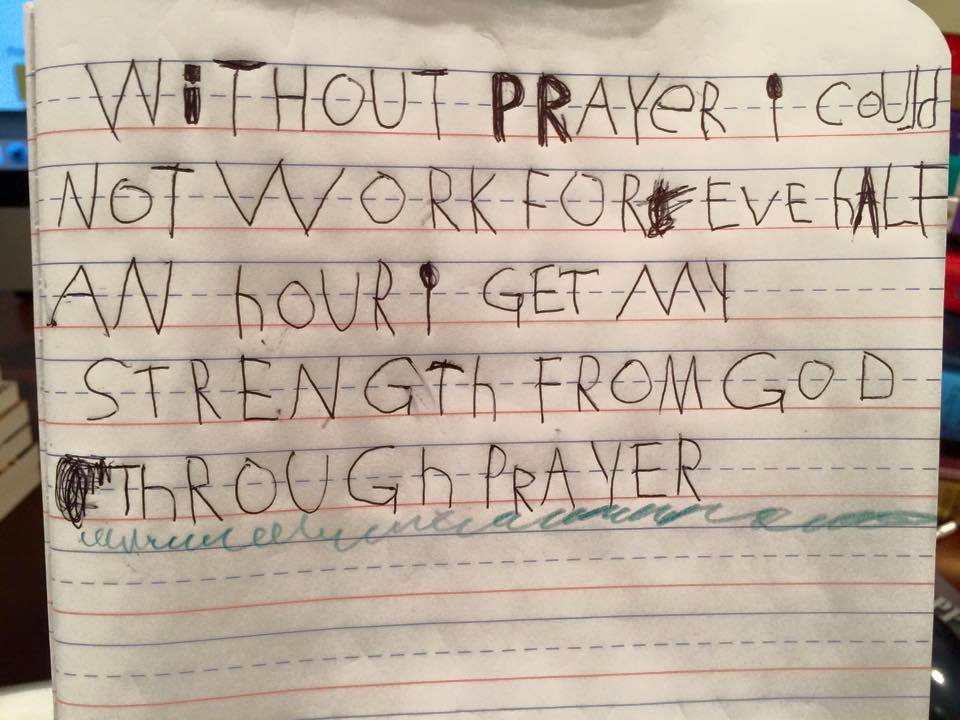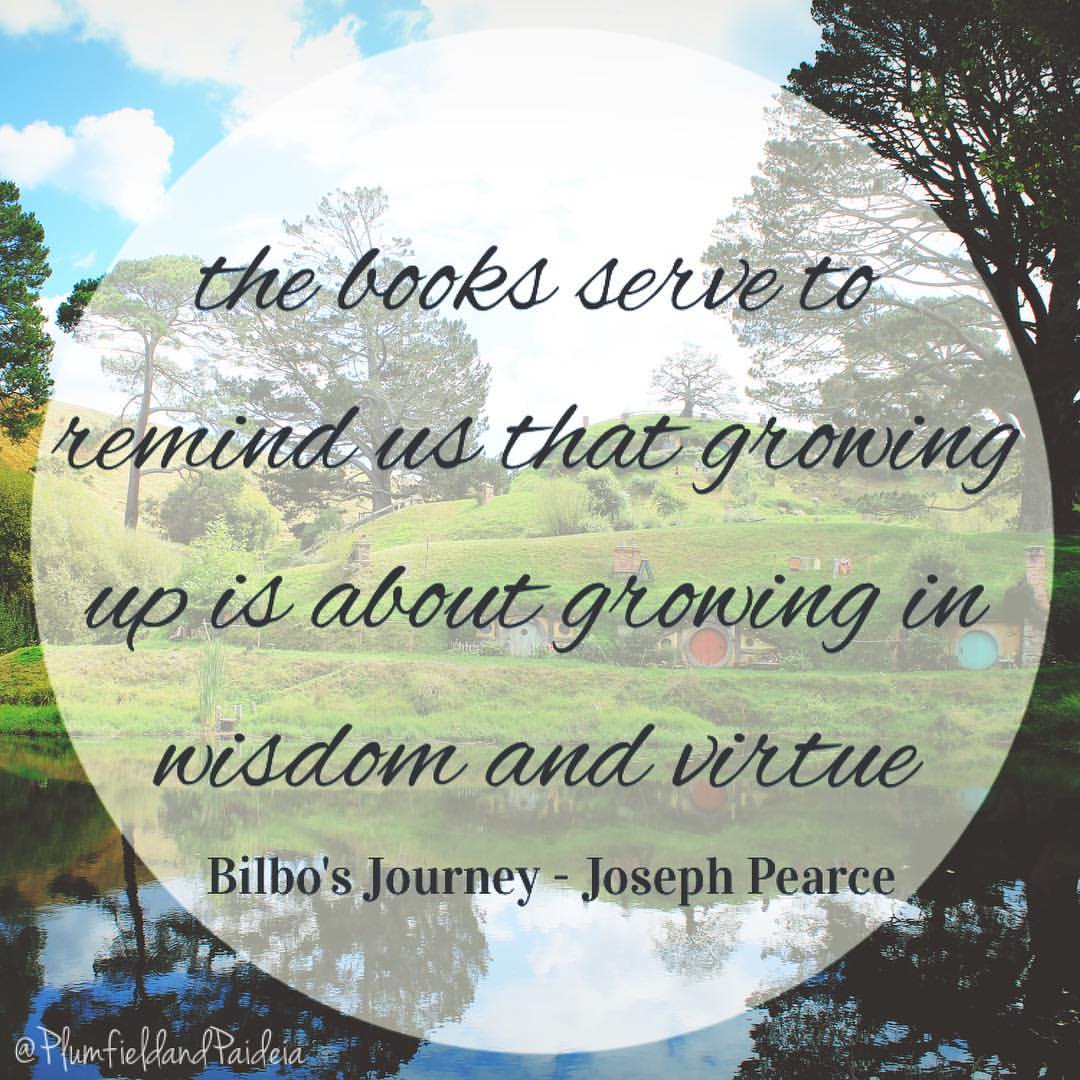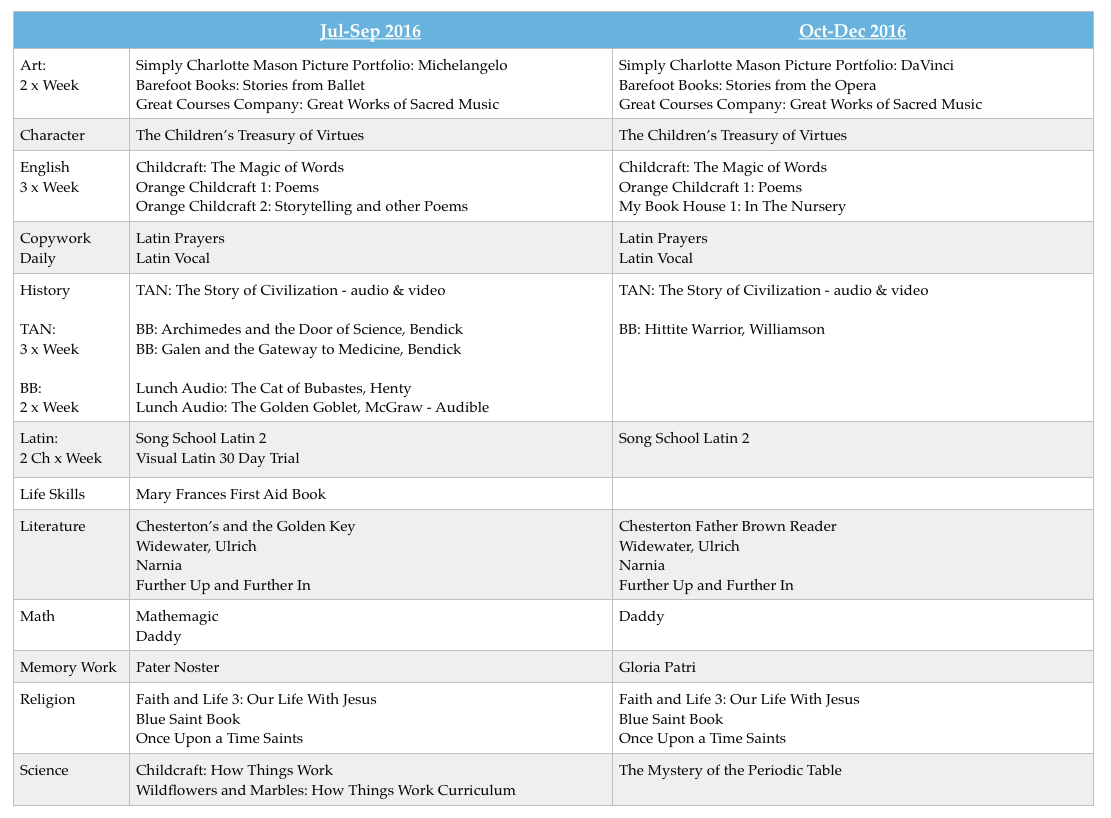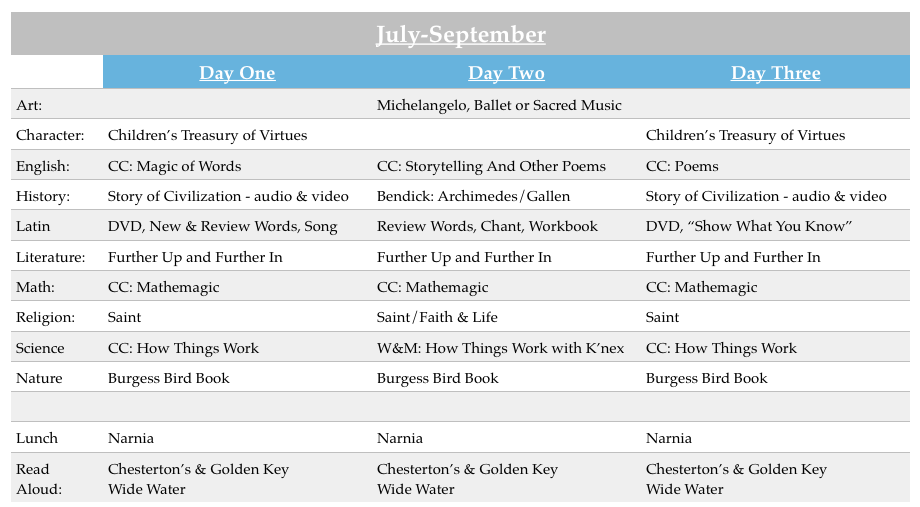“…the more a man looks at a thing, the less he can see it, and the more a man learns a thing the less he knows it.” – The Twelve Men, GKC
Like nearly all of the homeschool moms I know, I approach term planning with a mixture of anxiety, guilt, and eager anticipation. I regret the ground we haven’t covered – the times we did not make the most of our morning symposium, or when we let our commitment to nature walks slide, or when we ignored the math books in the corner of the room. I am anxious about whether or not the plans I have for the next term will be adequate, effective, appropriate, and attainable. And, I am full of eager anticipation about the fun new things we are going to learn, the stories we are going to get lost in, and the worlds that will open up to us. Planning is terrifying, overwhelming, and exciting all at once. And, for me, it comes every six to eight weeks.
Over the last couple of weeks on Facebook I have been casually talking about planning, and folks have asked to peek at my preparations. Surely it is not because I have any special wisdom, but rather it is probably because we homeschoolers are always, always, always looking at someone else’s plans. Presumably to be inspired and encouraged. Sadly, however, it often means that we take on more anxiety than we already had because it puts us into that awful comparison trap. For this reason, I try pretty hard not to look at other people’s plans when I am in planning mode. I want to lean into the Holy Spirit and trust my planning to Divine Providence instead. It is safer to look at other people’s plans when I am in the middle of my term – when I am too far away from changing my plans and have plenty of time to pray about what else I might be considering.

In our family we have discerned a “relaxed classical” approach. What this means to us is that we borrow from the principles of classical education without being legalistically bound to the recommendations that classical experts have compiled.
Along the way, I have read from a wealth of brilliant, wise, and good educational experts. But like the Chesterton quote above, I have found that the more that I have studied education, the less I have understood it. The more scrutiny I have applied, the less focus I have been able to muster.
In November of 2015, I read Teaching from Rest, and it was a game changer for me. This incredible little book was absolutely on point: not one of us is the master of our homeschool. Our homeschool does not belong just to us. It belongs first and last to Him. And, because He showers us with tender mercy and boundless love, we can absolutely trust Him with the details of all things – our homeschool notwithstanding.

As I have leaned into the Holy Spirit I have marveled at the confidence He has gifted to me. Eric Liddell, Olympic runner, said: “God made me fast. And when I run, I feel His pleasure.” While I cannot run (really, me running is laughable), I think that I know what Liddell means. When I rest in the Holy Spirit and pray my way through my planning, I feel His pleasure. When I summon my little chicks to the patio for our summer patio school and we are learning beautiful things, I feel His pleasure. When I consciously avoid the comparison game, I feel His pleasure. When we are enjoying beautiful and excellent books that He has led me to, I feel His pleasure.
Now, all of that said, I do know how helpful it is to take a peek at someone else’s plan. I know how just seeing how someone else plans things can help us tweak our planning tools, inspire us to try something new, and encourage us to plan what is right for our family’s unique needs. So, in the hopes that this will be encouraging and not competition inducing, inspiring and not overwhelming, I will offer you a peek at my humble plan. It’s not perfect. It will likely change a little. I will love parts of it and I will regret other parts. I will fail to follow it exactly. But, my plan is a tool in my homeschool tool kit – not a tyrant or taskmaster.

You may wonder how I make the curricular choices that I make. A combination of factors: there are core subjects my husband and I simply think are important. There are key principles my husband and I desire to instill in our children. There are things that simply seem like a good idea. Because we practice a relaxed classical approach, we adhere to the basic classical form, but we interpret it into our situation.
You will notice that there are a number of Childcraft books referenced in this plan. The reason for this is because I think that the Childcraft books are some of the most brilliant elementary school resources available. They are like living books in that they are conversational, they are intelligently designed to respect the child, and they absolutely cultivate wonder and awe for their subject matter. I use Childcraft in lieu of textbooks, but in addition to solid living books.

My July-September plan is a roadmap – not a law. The October-December is a work in progress where I am catching ideas for the next planning cycle.

Generally, we run a 3 day cycle. This means that no matter how many days per week we actually meet (usually between 5-6), we just know if we are on day 1, 2, or 3. This allows me to have a vision for our next few days, spread some things out, hit things in good balance, but also not be too distracted by detailed schedule plans.

Can I ask you a question about the “work” of your curricula? By that I mean, what do you consider the learning-activity or act of knowing of the material your are providing for them? Obviously, for memory work, it’s the production of a memorized piece. But for the literature selections (including history, etc.), do you use narration (i.e. CM?) or do you just read and absorb? I’m struggling to figure this out. I resonate a lot with the philosophy of CM, but my oldest is under 6 (the age at which CM would require narration). And I want to “expose” her to more stories than she could possibly narrate anyway. Is it enough to just read and enjoy?
Thanks!
Hi Heidi! YES! It *IS* enough to just read and enjoy. Children are natural sponges and worthy stories will penetrate their psyche and live there.
That said, as caretakers of their minds, it is wise to help this along if we can.
I would say that I trust the “work” to happen more or less naturally – and when it doesn’t then I look for ways to make that happen or I reconsider whether or not this particular pursuit is the right thing for this time.
For example, The Burgess Bird Book. I spread out our book, our supplemental resources (the bird call book, the coloring books, the Sibley cards, etc.) and get to my job of reading aloud. When we are done, the kids chatter away about whatever we read while they are coloring in their books and passing the cards around for studying. For the next day or two, I watch for them to comment about something from the books in regular conversation. Without fail, it comes. They notice a bird in the yard. They make a joke about a character. They ask a follow up question. They ask for more to color. Etc.
Also, I make sure to have other bird books, field guides, the Feathered Friends Childcraft book laying around. I often see them pouring over those and that satisfies me that their minds are wide awake.
I consider this sufficient. They have internalized something from that source and seeking it out in their free time. Their love of birds is being cultivated naturally and effectively.
What happens when that is not happening naturally? I evaluate the situation to see if I have failed to communicate my excitement of the subject. I evaluate whether or not it matters. In some cases, the content just isn’t essential.
Regarding narration, when we are in a rut and it isn’t just pouring out naturally, I use Rory Story Cubes. Here is how: https://plumfieldandpaideia.com/rory-story-cubes/
I don’t know that Miss Mason would approve of my approach to narration, but I know that my kids are constantly talking about what we are reading and studying. They tell everyone we meet whatever we are learning! 😉 (Nothing like impromptu narration in the church pews after mass… hahaha..)
Thank you so much! I need to come and attend your homeschool for a week, I think! I am struggling so much to craft all my inputs (my vision, philosophical leanings, intuition, creative ideas, ages of my children, my personality-and their personalities) into a workable output. This points me in the right direction.
Oh Heidi, you are totally welcome to come play with learning with us! 🙂
Diane, Jaime, and I always go back to this – let the Holy Spirit lead. It is so hard. We know. It is so natural and normal to let all of the excellent advice of others rattle around in our brain. So many well intentioned and wise experts who really do have worthy things to say – but they sound like a cacophony when we are listening to many at once. We have been there – we are there – we will always be wrestling with it too.
The thing that has helped each of us is to lean into the Holy Spirit and pray for discernment. Then, when we have done our part (prayer), we listen to our instincts and trust the Holy Spirit to work through them and through the circumstances of our lives.
All of this to say this: be at peace, pray, trust your instincts, remember that God trusted your babies to you because you are the right momma for them.
We keep reading experts. We take what resonates and leave what chafes. 🙂 -Sara
Great advice!
Hello! May I know for what grade level/age these plans are?
Hello Tina! These are for my early elementary school aged children. 🙂 Thanks for reading!
Hi, Sara- This is lovely! May I ask if all of this is done as a family? If so, are there additional independent assignments that you ask your children to do?
Hello Jeni! When I wrote that, my kids were 5, 7 and 9. At that time, we were doing all of it together. We were doing it that way because my nine year old hadn’t developed strong independent reading skills yet and I was still working on that with him. In the ensuing months, everyone went through significant developmental leaps. In Mid-Winter, I reevaluated our approach and made massive changes. Now, each child has quite a bit of independent work which is appropriate to their level and their needs and our table time is more for enrichment, faith, and culture. We are on a short break right now while my husband has a few weeks off. I hope that later this month I can do a post about how we have evolved and how we are working now.
Thank you for the helpful reply! I would be delighted to see a follow-up post if you do choose to do one!
<3